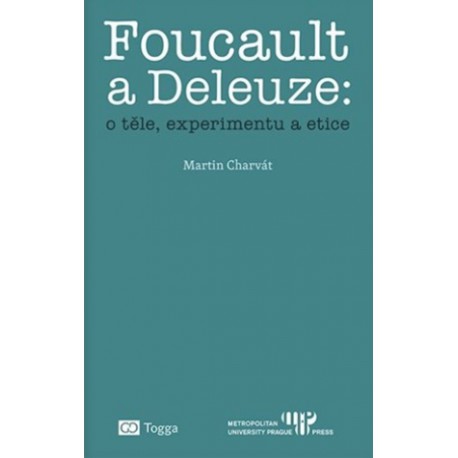No products
Data sheet
| Author | Charvát, Martin |
| Year of publication | 2018 |
| Publisher | Togga ve spolupráci s Metropolitní univerzitou Praha |
| ISBN | 978-80-7476-144-7 (Togga); 978-80-87956-83-0 (MUP) |
| Print run | 20 ks |
More info
The aim of the present book is to introduce and analyze the dispositions of ethics as presented in works of M. Foucault and G. Deleuze. My hypothesis is that ethics must be conceived as an interpretation and thematization of the meaning of the relationship between body, event and experiment. What brings together Foucault and Deleuze is the critique of externally constituted moral codes that are always creating a historically-economically-polico-socially determined subject, or certain norms of conduction and behaviour that are considered to be „good" or „right". However, the above-mentioned authors have based their conceptions on the belief that the human life should be characterized by freedom, or the potential of articulation of an individual (or his behaviour/action), regardless of external moral determinations. Foucault and Deleuze distinguish the possibility of a constant crossing of given institutional and socially grounded constraints, with the goal of the constant shaping of ones live that would not be restricted by normative and prescriptive rules. The theme of freedom is given into context of the experimental self--formation that takes place at the moment of uncertainty, at the moment of a radical crack of patterns of thought and action which leads to tematization of the relationship between ethics and the event. We must want the event, we must desire it, which does not mean to be passive but to create actively, we could even say that the event is a prerequisite for the possibility of experiment and the possibility of immanently conceived ethics.


